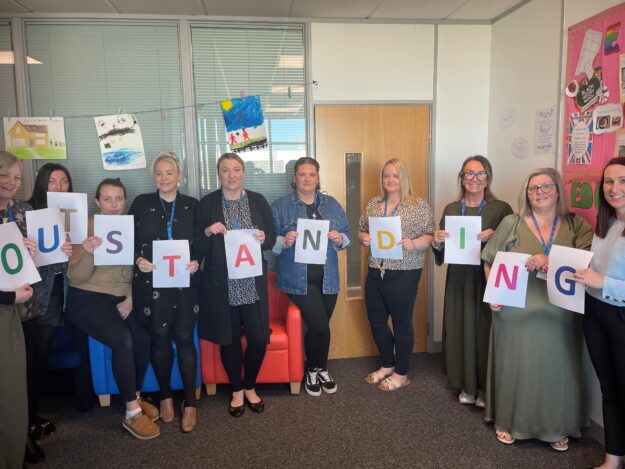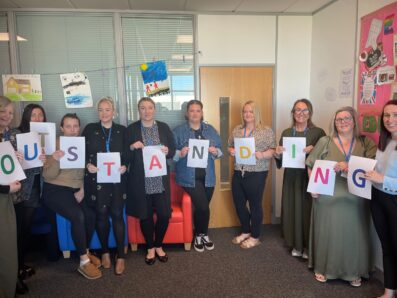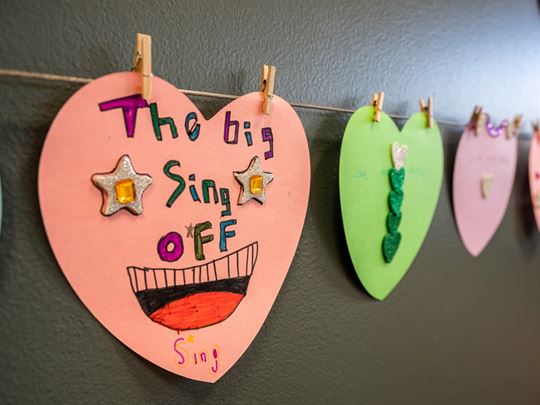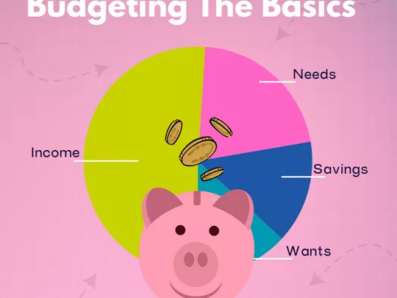The Lifelong Benefits of Reading to Children in Care
There is nothing like losing yourself in a good book – when you become so immersed in an imaginary world and invested in the characters that you can’t put the book down. But a love of reading isn’t something that just happens; it takes consistency, nurturing, and encouragement from caregivers who role model reading themselves.
In this article, we explore the benefits of reading for children in your care, the barriers foster children face, and the steps you can take to encourage children to discover a lifelong passion for reading.

Why reading is important for children
Picking up a book and reading it to your foster child provides benefits that go far beyond simply learning how to read the words on a page. They’re far-reaching, touching every part of a child’s life – both now and in the future. Below, we take a deeper look at just a handful of the benefits of reading for children in your care.
Nurturing your bond
Sharing quality one-on-one time with the child in your care can help strengthen your bond, and reading is the perfect way to do it. In fact, research by the National Children’s Bureau found that 90% of foster parents believe that reading with their foster child has positively impacted their relationship.
When you’re sitting and reading with your child, there’s no time to get distracted by your to-do list or phone. Instead, you can get lost in a story, going on adventures and becoming all sorts of characters together.
During this shared time, your foster child will know they have your full attention, which might make it easier for them to open up about how they’re thinking and feeling. And if you choose a book with characters who experience a range of emotions, it could help prompt your foster child to express themselves too.
Helping children communicate
When you read with your foster child, it can support their ability to communicate with you, their friends, teachers, and other important people in their lives. Children are wired to develop language, but they depend on people around them to nurture their communication skills and expand their vocabulary.
When you read with a child, you naturally use facial expressions, gestures and varied tones of voice to bring the story to life. This helps children understand how conversations work – when to listen and when to speak – and teaches them how to read social cues and other people’s body language.
If you foster a non-verbal autistic child, this can be especially helpful as they may rely on body language and facial expressions to connect with others. It can also help them build a foundation for developing communication skills in a way that meets their individual needs.
Sparking imagination and creativity
As soon as you and your foster child open a book, you’re transported to another world. Whether it’s one much like our own or a place where you’re fighting dragons or hanging out with dinosaurs, stories spark imagination and creativity.
This can help rebuild your foster child’s confidence and change how they see the world – from a place that hasn’t always been kind to them, to one filled with magic, hope, and endless possibilities.
Stories help children dream big. When they read about people just like them becoming astronauts, explorers, writers or something else extraordinary, it gives them the space to imagine it for themselves, which is the first step towards making it a reality.
Learning to empathise
Although it’s important for children to read about people who share their background, culture, ethnicity or faith, stories with diverse characters help children see the world from another perspective.
Whether a character is living with a disability or has a different ethnicity, culture, or life experiences from their own, when children see these characters in their books, it helps them understand that everyone is unique and this is something to be celebrated.
It also teaches children how to empathise with others, as they respond to what the characters are experiencing and how they’re feeling as they travel with them on their journey through the story. This is an essential skill that will help them build meaningful friendships now and in the future.
Changing their life
From building a stronger bond with you and learning to communicate better to sparking their imagination and helping them empathise with others, shared reading can truly change your foster child’s life.
Research by BookTrust found that children who read with their parents or caregivers experience improved mental well-being, social skills, relationships, and school performance. Another study revealed that children who read for pleasure are more likely to earn more in adulthood, leading to a higher standard of living and potentially changing outcomes for future generations too.
Barriers to reading for children in care
Before we explore ways to encourage your foster child to engage in reading with you, let’s look at some of the barriers they may face.
When do children start reading?
Children typically begin learning to read independently between the ages of four and seven. However, the foundations for a love of reading start from the moment you begin reading to them, which can happen at any time from birth, but for foster children, it may be much later.
A BookTrust study found that nearly half of children living in care have below-average reading levels, facing more barriers to reading than other children their age. These barriers include:
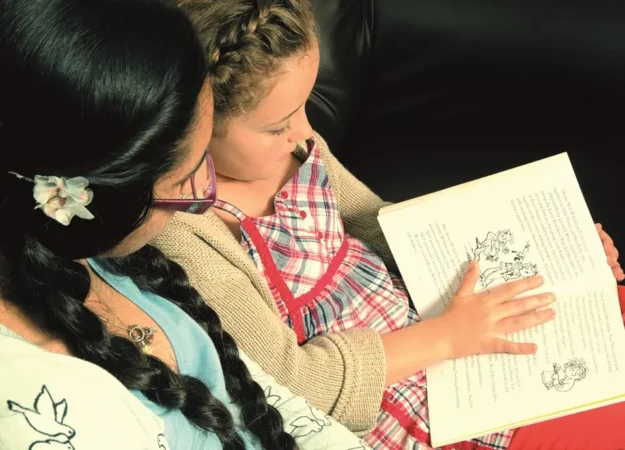
- Lack of reading role models: Children naturally imitate their caregivers and often want to be involved in whatever they’re doing. If your foster child lived in a home where reading wasn’t a routine activity, they may not see it as a normal or enjoyable thing to do.
- Limited access to books: If your foster child lived in a home where they had limited access to age-appropriate books or didn’t have the chance to visit libraries, they may have missed out on that early exposure to books, which can help spark an interest.
- Instability: If a foster child has moved homes multiple times, it can be difficult for them to develop consistent reading habits.
- Trauma: Foster children who are living with trauma may find it difficult to concentrate, struggle to regulate their emotions, and retain information, impacting their attention span and ability to focus on reading.
- Negative perceptions of reading: If a child associates reading with punishment, fear, or failure, they may become anxious about reading and struggle to see it in a positive light.
The good news is that a child’s reading can be improved, and a love of books ignited, no matter their age or previous reading experience. In fact, the BookTrust discovered that when children live in stable homes with foster parents who routinely read to them, their reading skills increase as they get older.
But how do you get foster children reading? Below are our tips.
Tips for encouraging foster children to read
- Make it routine: Pick a time of day that works for you and your foster child, and make reading together a regular, daily habit.
- Let them choose the book: Take your foster child to the library or a bookshop and let them pick out the books that interest them.
- Read books that represent your child: Choose stories that include foster families or reflect your child’s experiences, such as our book, Filby the Fire Dragon, so they can see themselves in the books they read.
- Engage them using their interests: Your foster child is more likely to enjoy reading if it includes their special interests. For example, if they love cars, find books featuring cars, and if they’re into animals, find books with animal characters.
- Try audiobooks: If your foster child struggles to sit still or concentrate, audiobooks can be a great alternative and are perfect for long car journeys too.
- Make it fun: Bring stories to life by using props, dressing up, or playing instruments to mimic sounds from the book, creating an immersive experience.
- Create a reading nook: Make story time special by setting up a cosy space with a tipi, blankets, cushions, and fairy lights. Your foster child will look forward to curling up for story time in their inviting reading corner every day.
- Tap into support: At FCA, our support for children in foster care includes education leads who can help children catch up at school and provide more tips to encourage them to read at home.
If you’d like to learn more about fostering, call us on 0800 023 4561 or submit an online enquiry form, and we’ll be in touch.

Read more…














